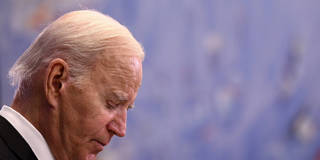Contrary to many Western analysts’ expectations, the shift from a unipolar to a multipolar world economy will not lead to a China-led alternative order but to global instability. Amid deepening economic fragmentation, leaders must forestall a rapid descent into chaos by strengthening the existing multilateral architecture.
CAMBRIDGE – The Western-led global economic order had a bad 2023. Surprisingly, the primary cause was not the emergence of an alternative order led by China, as some had anticipated. Instead, it was internal stress that led to more doubts around the world about its effectiveness and legitimacy.
But a new international order is unlikely to emerge anytime soon. Instead, as more and more countries decide to self-insure by building alternatives to the Western-led order, the global economy risks increasing fragmentation, eroding America’s leadership role and accelerating a system-wide shift toward disorder.
To be sure, doubts about the Western-led economic order began long before 2023. Over just the past 15 years, its credibility and smooth functioning have been undermined by policy missteps that resulted in a series of disruptions. These include the 2008 global financial crisis, the growing weaponization of trade and investment sanctions, the unequal distribution of COVID-19 vaccines, central banks’ mischaracterization of inflation as “transitory,” and the consequences of the banks’ aggressive interest-rate hikes.

CAMBRIDGE – The Western-led global economic order had a bad 2023. Surprisingly, the primary cause was not the emergence of an alternative order led by China, as some had anticipated. Instead, it was internal stress that led to more doubts around the world about its effectiveness and legitimacy.
But a new international order is unlikely to emerge anytime soon. Instead, as more and more countries decide to self-insure by building alternatives to the Western-led order, the global economy risks increasing fragmentation, eroding America’s leadership role and accelerating a system-wide shift toward disorder.
To be sure, doubts about the Western-led economic order began long before 2023. Over just the past 15 years, its credibility and smooth functioning have been undermined by policy missteps that resulted in a series of disruptions. These include the 2008 global financial crisis, the growing weaponization of trade and investment sanctions, the unequal distribution of COVID-19 vaccines, central banks’ mischaracterization of inflation as “transitory,” and the consequences of the banks’ aggressive interest-rate hikes.